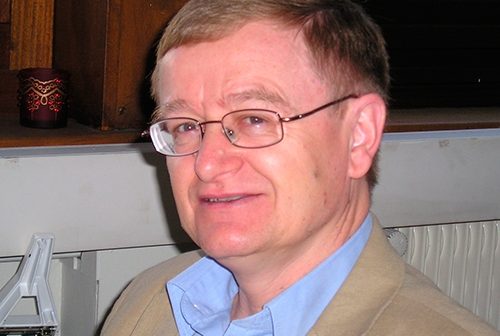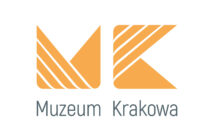An interview with Prof. Waldemar Martyniuk, Director of the Centre for Polish Language and Culture in the World, which is part of the Faculty of Polish Studies at the Jagiellonian University.
• What impact has Poland`s symbolic return to Europe, that is the change in the country’s political system in 1989 and its subsequent accession to the European Union, had on the interest of foreigners in learning our language?
• I would say that that the attitude towards the Polish language has in a way returned to normal. What I mean is that it has ceased to be perceived as both exotic and extremely hard to learn, and therefore only worth the attention of a small group of enthusiasts and others, often guided by altruistic motives. It has become, like many other so-called ‘difficult’ languages, a language that is worth learning for practical reasons. Poland`s return to the global economy and the large scale foreign investment in our country meant that a good command of Polish is an asset, an asset which is beneficial for an individual’s professional development. Earlier motivations were rather narrower. The Polish language was of interest for students and scholars of philology or Slavic studies, or indeed young people, especially from the developing countries, who wished to study in Poland. In our centre, we also taught young people of Polish descent who had decided to learn the language and culture of their ancestors. The latter motivation is still quite frequent, but we also see that learning Polish is, for a growing number of foreigners, especially those from Ukraine and the countries of the Far East, a practical necessity in life.
• How has the Centre adapted to these changes?
• Mainly through becoming more professional with regard to the teaching of the Polish language, and this change started in the late 1990s. We drew on the tried and tested methods used in teaching the most popular languages in the world, namely English, French, German and Spanish. As a result, we have contributed significantly to the establishment of a system of certified state exams in Polish as a foreign language. New curricula, numerous textbooks and modern teaching methods have also been created in our Centre, where the teaching involves much more than the all too familiar forms of studying within the semester system. We offer a wide variety of courses, including those for students with specific needs, and even one-to-one tuition. We also run full-time graduate and postgraduate programmes for those who wish to become teachers of Polish as a foreign language.
• To what extent does the Centre also popularise the Polish culture?
• From the very beginning, this has been part and parcel of the language teaching. We still attach great importance to the history of Poland, including, of course, the political changes of the twentieth century. Naturally, content of this kind is adapted to the fields our students are interested in and their level of proficiency in the Polish language. However, we continue to observe that there is considerable interest in learning about the Polish theatre, art, film and literature.
• How do you evaluate the effectiveness of your teaching?
• The quality of the teaching is our absolute priority. This is not only statement of fact, but the whole system is based on the preparation of classes and the continuous evaluation of their quality. Our graduates receive our certificates, but they are also encouraged to take the state exams, with which they generally cope very well. And most importantly, we are capable of preparing students so they can undertake any university course in Polish, after only two semesters of intensive study.
• What impact has Poland`s symbolic return to Europe, that is the change in the country’s political system in 1989 and its subsequent accession to the European Union, had on the interest of foreigners in learning our language?
• I would say that that the attitude towards the Polish language has in a way returned to normal. What I mean is that it has ceased to be perceived as both exotic and extremely hard to learn, and therefore only worth the attention of a small group of enthusiasts and others, often guided by altruistic motives. It has become, like many other so-called ‘difficult’ languages, a language that is worth learning for practical reasons. Poland`s return to the global economy and the large scale foreign investment in our country meant that a good command of Polish is an asset, an asset which is beneficial for an individual’s professional development. Earlier motivations were rather narrower. The Polish language was of interest for students and scholars of philology or Slavic studies, or indeed young people, especially from the developing countries, who wished to study in Poland. In our centre, we also taught young people of Polish descent who had decided to learn the language and culture of their ancestors. The latter motivation is still quite frequent, but we also see that learning Polish is, for a growing number of foreigners, especially those from Ukraine and the countries of the Far East, a practical necessity in life.
• How has the Centre adapted to these changes?
• Mainly through becoming more professional with regard to the teaching of the Polish language, and this change started in the late 1990s. We drew on the tried and tested methods used in teaching the most popular languages in the world, namely English, French, German and Spanish. As a result, we have contributed significantly to the establishment of a system of certified state exams in Polish as a foreign language. New curricula, numerous textbooks and modern teaching methods have also been created in our Centre, where the teaching involves much more than the all too familiar forms of studying within the semester system. We offer a wide variety of courses, including those for students with specific needs, and even one-to-one tuition. We also run full-time graduate and postgraduate programmes for those who wish to become teachers of Polish as a foreign language.
• To what extent does the Centre also popularise the Polish culture?
• From the very beginning, this has been part and parcel of the language teaching. We still attach great importance to the history of Poland, including, of course, the political changes of the twentieth century. Naturally, content of this kind is adapted to the fields our students are interested in and their level of proficiency in the Polish language. However, we continue to observe that there is considerable interest in learning about the Polish theatre, art, film and literature.
• How do you evaluate the effectiveness of your teaching?
• The quality of the teaching is our absolute priority. This is not only statement of fact, but the whole system is based on the preparation of classes and the continuous evaluation of their quality. Our graduates receive our certificates, but they are also encouraged to take the state exams, with which they generally cope very well. And most importantly, we are capable of preparing students so they can undertake any university course in Polish, after only two semesters of intensive study.

Język polski – trudny, ale coraz bardziej potrzebny
Rozmowa z prof. Waldemarem Martyniukiem, dyrektorem Centrum Języka i Kultury Polskiej w Świecie na Wydziale Polonistyki Uniwersytetu Jagiellońskiego.
• Jak symboliczny powrót Polski do Europy, czyli zmiana ustrojowa z 1989 r. i późniejsze m.in. wstąpienie Polski do Unii Europejskiej wpłynęło na zainteresowanie nauką naszego języka w świecie?
• Myślę, że stosunek do języka polskiego znormalniał. To znaczy przestał on być postrzegany jako egzotyczny, bardzo trudny do nauki, a więc wart zainteresowania jedynie ze strony wąskiej grupy hobbystów czy innych osób kierujących się motywami altruistycznymi. Stał się, podobnie jak wiele innych „trudnych”, językiem, którego warto się uczyć z powodów praktycznych. Powrót Polski do światowego obiegu gospodarczego, duża skala inwestycji zagranicznych w naszym kraju sprawiły, że jego znajomość jest zwyczajnie potrzebna w pracy, daje praktyczne korzyści dla rozwoju zawodowego. Wcześniej motywacje były znacznie węższe. Język polski był ciekawy dla ludzi o zainteresowaniach filologicznych czy slawistycznych oraz dla młodzieży, zwłaszcza z krajów rozwijających się, która chciała w Polsce studiować. W naszym centrum uczyliśmy też młodych ludzi z polskimi korzeniami, którzy chcieli poznać język i kulturę swych przodków. Te ostatnie motywacje nadal występują, ale widać już wyraźnie, że nauka polskiego dla rosnącej liczby obcokrajowców, zwłaszcza z Ukrainy i krajów Dalekiego Wschodu, stała się praktyczną, życiową potrzebą.
• Jak Centrum dostosowało się do tych zmian?
• Głównie poprzez proces profesjonalizacji nauczania języka polskiego, który rozpoczęliśmy w końcu lat 90-tych ubiegłego stulecia. Czerpaliśmy wzory z metod nauczania języków najpowszechniej używanych świecie: angielskiego, francuskiego, niemieckiego, hiszpańskiego. Przyczyniliśmy się do ustanowienia systemu certyfikatowych egzaminów państwowych z języka polskiego jako obcego. Przygotowaliśmy nowe programy nauczania, całą kolekcję podręczników, nowoczesne metody dydaktyczne. Kształcenie w naszym centrum obejmuje dzisiaj znacznie więcej form niż klasyczne studia w systemie semestralnym. To różnego rodzaju kursy, w tym profilowane pod kątem specyficznych potrzeb studentów, a także nauczanie indywidualne. Zajmujemy się także kształceniem na regularnych magisterskich i podyplomowych studiach przyszłych nauczycieli języka polskiego jako obcego.
• Jakie znaczenie w działalności Centrum ma upowszechnianie wiedzy na temat polskiej kultury?
• Od samego początku była ona nierozłączna z nauczaniem języka. Ciągle dużą wagę przywiązujemy do historii Polski, w tym zmian politycznych z XX wieku. Tego typu treści w dużym stopniu dostosowane są do tego, jakimi kierunkami studiów w Polsce zainteresowani są nasi słuchacze i stopniem ich zaawansowania w nauce samego języka. Widzimy niezmiennie duże zainteresowanie poznawaniem polskiego teatru, sztuki filmowej, literatury.
• Jak pan ocenia skuteczność waszej dydaktyki?
• Jakość nauczania jest naszym priorytetem. To nie tylko deklaracja, ale system przygotowywania zajęć, nieustanne oceny ich poziomu. Naszym absolwentom wydajemy wewnętrzne świadectwa, ale zachęcamy ich także do przystąpienia do egzaminów państwowych, z którymi zresztą na ogół radzą sobie znakomicie. No i najważniejsze – w ciągu dwóch semestrów intensywnej nauki jesteśmy w stanie przygotować naszych słuchaczy do podjęcia dowolnych studiów w języku polskim.
• Jak symboliczny powrót Polski do Europy, czyli zmiana ustrojowa z 1989 r. i późniejsze m.in. wstąpienie Polski do Unii Europejskiej wpłynęło na zainteresowanie nauką naszego języka w świecie?
• Myślę, że stosunek do języka polskiego znormalniał. To znaczy przestał on być postrzegany jako egzotyczny, bardzo trudny do nauki, a więc wart zainteresowania jedynie ze strony wąskiej grupy hobbystów czy innych osób kierujących się motywami altruistycznymi. Stał się, podobnie jak wiele innych „trudnych”, językiem, którego warto się uczyć z powodów praktycznych. Powrót Polski do światowego obiegu gospodarczego, duża skala inwestycji zagranicznych w naszym kraju sprawiły, że jego znajomość jest zwyczajnie potrzebna w pracy, daje praktyczne korzyści dla rozwoju zawodowego. Wcześniej motywacje były znacznie węższe. Język polski był ciekawy dla ludzi o zainteresowaniach filologicznych czy slawistycznych oraz dla młodzieży, zwłaszcza z krajów rozwijających się, która chciała w Polsce studiować. W naszym centrum uczyliśmy też młodych ludzi z polskimi korzeniami, którzy chcieli poznać język i kulturę swych przodków. Te ostatnie motywacje nadal występują, ale widać już wyraźnie, że nauka polskiego dla rosnącej liczby obcokrajowców, zwłaszcza z Ukrainy i krajów Dalekiego Wschodu, stała się praktyczną, życiową potrzebą.
• Jak Centrum dostosowało się do tych zmian?
• Głównie poprzez proces profesjonalizacji nauczania języka polskiego, który rozpoczęliśmy w końcu lat 90-tych ubiegłego stulecia. Czerpaliśmy wzory z metod nauczania języków najpowszechniej używanych świecie: angielskiego, francuskiego, niemieckiego, hiszpańskiego. Przyczyniliśmy się do ustanowienia systemu certyfikatowych egzaminów państwowych z języka polskiego jako obcego. Przygotowaliśmy nowe programy nauczania, całą kolekcję podręczników, nowoczesne metody dydaktyczne. Kształcenie w naszym centrum obejmuje dzisiaj znacznie więcej form niż klasyczne studia w systemie semestralnym. To różnego rodzaju kursy, w tym profilowane pod kątem specyficznych potrzeb studentów, a także nauczanie indywidualne. Zajmujemy się także kształceniem na regularnych magisterskich i podyplomowych studiach przyszłych nauczycieli języka polskiego jako obcego.
• Jakie znaczenie w działalności Centrum ma upowszechnianie wiedzy na temat polskiej kultury?
• Od samego początku była ona nierozłączna z nauczaniem języka. Ciągle dużą wagę przywiązujemy do historii Polski, w tym zmian politycznych z XX wieku. Tego typu treści w dużym stopniu dostosowane są do tego, jakimi kierunkami studiów w Polsce zainteresowani są nasi słuchacze i stopniem ich zaawansowania w nauce samego języka. Widzimy niezmiennie duże zainteresowanie poznawaniem polskiego teatru, sztuki filmowej, literatury.
• Jak pan ocenia skuteczność waszej dydaktyki?
• Jakość nauczania jest naszym priorytetem. To nie tylko deklaracja, ale system przygotowywania zajęć, nieustanne oceny ich poziomu. Naszym absolwentom wydajemy wewnętrzne świadectwa, ale zachęcamy ich także do przystąpienia do egzaminów państwowych, z którymi zresztą na ogół radzą sobie znakomicie. No i najważniejsze – w ciągu dwóch semestrów intensywnej nauki jesteśmy w stanie przygotować naszych słuchaczy do podjęcia dowolnych studiów w języku polskim.










